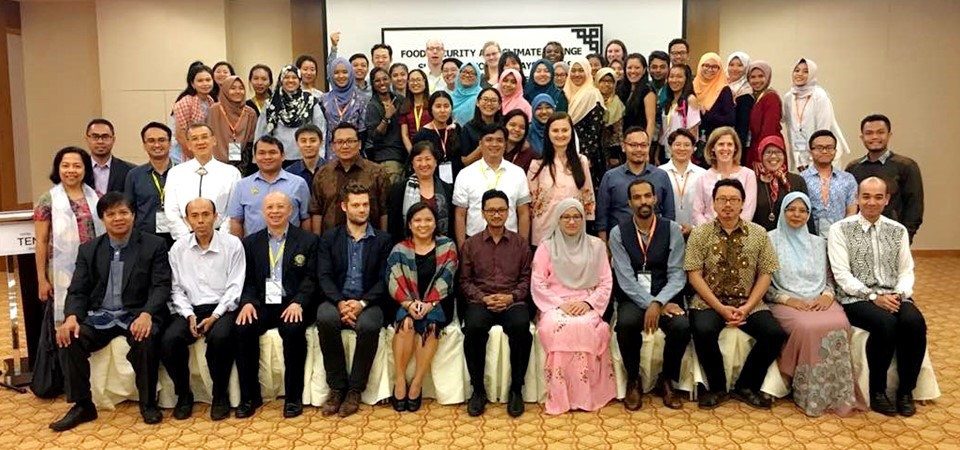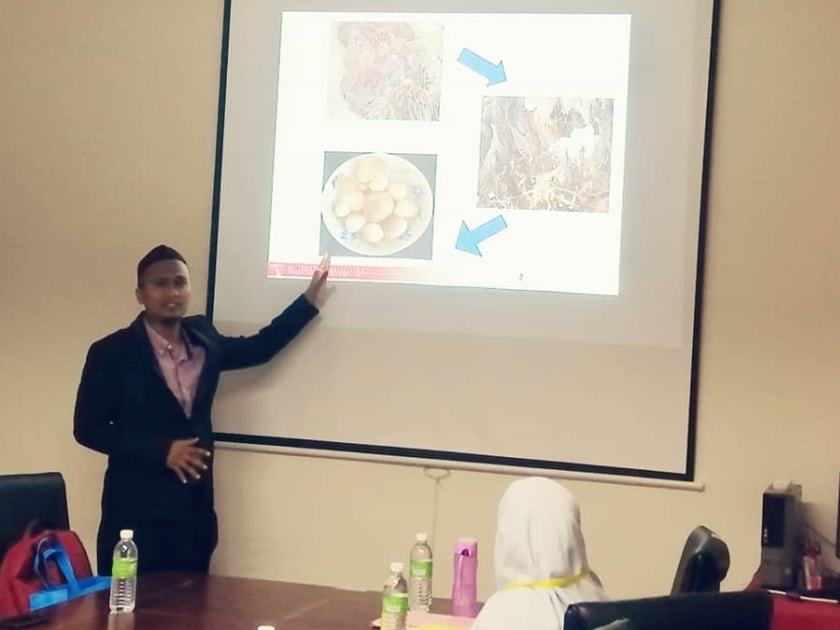The 2020 Elsevier Research Intelligence on Evidence-Based Policymaking in Indonesia named three partners of the MS FSCC project as the top publishers of scientific articles on oil palm research. Institut Pertanian Bogor (IPB) ranked 1st with 69 articles published, followed by University of Goettingen which ranked 2nd with 42 articles, and Universiti Putra Malaysia (UPM) in 3rd with 24 articles. The three universities, all members of the Southeast Asian University Consortium for Graduate Education in Agriculture and Natural Resources (UC), conducted wide range of research on oil palm covering topics in sustainability, biodiversity, socioeconomics, and the environment.
For both IPB and UPM, the oil palm industry is vital in their country's economy and plays a huge part of their export industry. It is also an important food source and can be used as feed, fuel, or as chemical component. Eighty-five percent (85%) of the global oil palm production can be found in Indonesia and Malaysia1 and its ecological sustainability has been the focus of one of MS FSCC's project activities.
 Attendees of the 2018 UC-FSCC Summer School on Oil Palm-Cattle Integration: A Transition Towards Sustainability in Food Security and Climate Change hosted by Universiti Putra Malaysia (UPM).
Attendees of the 2018 UC-FSCC Summer School on Oil Palm-Cattle Integration: A Transition Towards Sustainability in Food Security and Climate Change hosted by Universiti Putra Malaysia (UPM).
The MS FSCC project aims to build a joint master's degree on the topic of Food Security and Climate Change to prepare graduates to work at implementing the commitments of the member countries at the last Paris Conference on Climate Change, while taking into consideration the challenges of food security linked with the recent implementation of the ASEAN integrated market. The project is funded by the European Commission's ERASMUS+ program and part of its activities is the conduct of a Summer School, an intensive course on Sustainability Assessment in Agricultural Production and Food Processing. Annually since 2017, the Summer School is organized to discuss topics within the world food system framework.
In 2018, UPM hosted the 2nd UC-FSCC Summer School on Oil Palm-Cattle Integration: A Transition Towards Sustainability in Food Security and Climate Change. This was co-organized with Universitas Gadjah Mada (UGM) in Indonesia and the University of Natural Resources and Life Sciences, Vienna (BOKU) in Austria. The Summer School took the participants to Pahang and Negeri Sembilan to explore common agricultural practices of farmers and private companies operating oil palm-cattle integration vis-à-vis practices of oil palm plantation only. The Summer School explored oil palm production and cattle integration as possible sustainability transition strategy given the effects of climate change to the different sectors of both developed and developing countries.
University of Goettingen, MS FSCC project partner, worked with IPB in various research studies including the Oil Palm Adaptive Landscape project and the Global Challenges Research Fund's Trade, Development and the Environment Hub. These two universities also collaborated with different institutions in disseminating research on oil palm through summer courses available for international participants. University of Goettingen also served as host institution for other MS FSCC students conducting their research and attending classes in the university.
SEARCA, which serves as UC Secretariat and MS FSCC project member, likewise have scholars studying in IPB and UPM who conducted research on oil palm for their thesis. Results from these studies have also been presented in conferences.
 SEARCA Scholar Noor Azrimi Bin Umor presented his research on "Effect of Composting Time and Effective Microbes (EM) Doses on Oil Palm Empty Fruit Bunch (OPEFB) for Cultivation of Volvariella volvacea."
SEARCA Scholar Noor Azrimi Bin Umor presented his research on "Effect of Composting Time and Effective Microbes (EM) Doses on Oil Palm Empty Fruit Bunch (OPEFB) for Cultivation of Volvariella volvacea."
Through the MS FSCC project, all three universities have worked together to share academic expertise and resources, conduct collaborative research, and participate in faculty and student mobility programs for the development of a joint degree that would address the issues of climate change and food security.
Other members of the MS FSCC project include Universitas Gadjah Mada (UGM) in Indonesia, Kasetsart University (KU) in Thailand as the lead, and University of the Philippines Los Baños (UPLB) in the Philippines. Partner institutions in Europe include Montpellier SupAgro in France, University of Goettingen in Germany, and University of Natural Resources and Life Sciences, Vienna (BOKU) in Austria. Non-UC partners involved in the project include Chiang Mai University and Prince of Songkla University both in Thailand, Central Luzon State University (CLSU) in the Philippines, University of Battambang (UB) and Royal University of Agriculture (RUA) both in Cambodia.
1Thomas Guillaume et al. "Carbon Costs and Benefits of Indonesian Rainforest Conversion to Plan-tations". Nature Communications (2018). doi: 10.1038/s41467-018-04755-y

